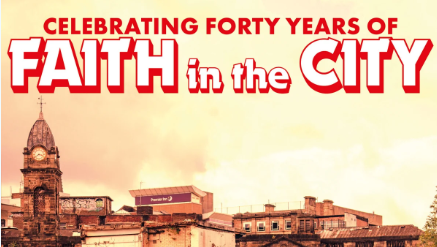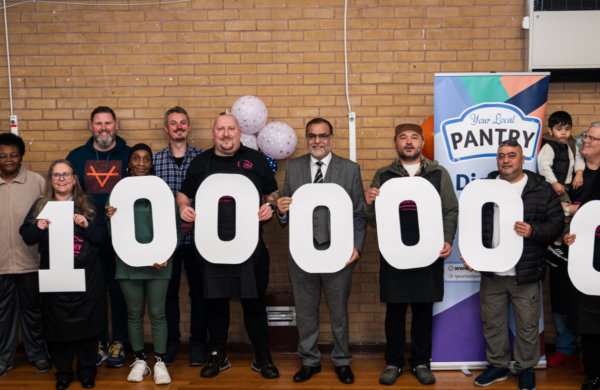A place to call home
Self-Reliant Group facilitator, Laura Walton, remembers the struggles facing those seeking asylum in this country.
A shielding friend visited my back garden this week and even if it had been a bit wild after all the rain, she would have been equally as delighted to be there. She has large windows in her flat and grassy area outside but that was everyone else’s sanctuary so therefore could not be hers. She had a quick coffee and a biscuit but to her it was a taste of that freedom that we are now used to and which will keep her going until shielding people are released.
She, like so many others is waiting for her final release papers, permission to come and go and meet with others, enter people’s houses and ultimately to return home. Her home has been many things over the last few months; her classroom, her church, her supermarket, her gym, her social life, her counselling room and her prison. She has always been safe there, if frustrated, lonely and at times fed up and then lately despondent and cheerless. But her home has been and remains her safe place and is hers.
We know not everyone can say that about the place they live in.
The Red Cross amongst other organisations has continued to offer care, support and practical help to people without homes or safe places to stay. Many people in the asylum seeking process have been living in hotels through lockdown but are now waiting nervously to hear that they will be asked to leave. For them their personal situations within a Covid-19 recovery phase is still very precarious. For many who are new to the country, to the language, the customs and the systems, and who have come out of traumatic and often life threatening circumstances, their sanctuary is about to be terminated.
Through lockdown they have had the stability and assurance of a bed for every night, even if the address was still carried around on a scrap of paper. Most have appreciated meal times and a few the luxury of a chosen particular bar of soap. Being in contact with their families overseas has been a luxury many have had to do without.
And so they are waiting, waiting to hear about losing the only stability in their lives right now, waiting to hear from lawyers, from the Home Office, even for texts that will give them some idea of what lies ahead now for them.
While we have been waiting desperately for the go ahead to go….and come back and go again etc etc, they are waiting and about to lose their place of safety and a room that was just their own.
We are so used to the words, easing and relaxing when related to the upheaval of the last few months. Even those words sound like the opening up of our lives again and a future of opportunities and choices. Let’s spare a thought or even better, say a prayer for those people seeking asylum in this country. Let’s pray especially for those members in Self Reliant Groups here in Manchester who are in the process and have been stuck there for a very long time. Let’s pray that their waiting will soon come to an end. That in losing their hotel room or room in a house or someone’s sofa or a tent space, they will gain a more permanent place that they can begin to call home and begin to make decisions to direct their own lives.
Isaiah 40 verse 31
But those who keep waiting for the Lord will renew their strength. Then they’ll soar on wings like eagles; they’ll run and not grow weary; they’ll walk and not grow faint.
Find out more about Self-Reliant Groups: http://www.church-poverty.org.uk/srg .
How should churches address rural poverty?
How is rural poverty changing, and how should churches, dioceses and Government respond? Paul Phillips explores the issue, and reports on his diocese’s work. In …
Faith In The City: why it still matters, 40 years on
In a new book, authors Terry Drummond and Joseph Forde revisit the landmark Faith In The City report, 40 years on. Faith in the City, …
Pantries reach 1 million visits – as new research proves they work
Community breakfast held to mark millionth visit New research shows Pantries improve people’s health, reduce worries and reunite communities Thank you for your amazing support! …
Grief is hard enough: it’s time to improve funeral support
Lindesay Mace from Quaker Social Action outlines their latest work to help people with funeral costs Bereavement can be a deeply challenging experience. In the …
New toolkit: Hosting a regional anti-poverty roundtable
Our new roundtable guide will help churches or dioceses to host productive regional events We’ve published a new resource for churches and dioceses who would …
Review: The Perils of Universal Credit
Ellie Malhotra reviews a new play, a much-needed wake-up call for change that restores power to voices that are too often ignored. Tucked away above …
How should churches address rural poverty?
How is rural poverty changing, and how should churches, dioceses and Government respond? Paul Phillips explores the issue, and reports …
Faith In The City: why it still matters, 40 years on
In a new book, authors Terry Drummond and Joseph Forde revisit the landmark Faith In The City report, 40 years …
Pantries reach 1 million visits – as new research proves they work
Community breakfast held to mark millionth visit New research shows Pantries improve people’s health, reduce worries and reunite communities Thank …



